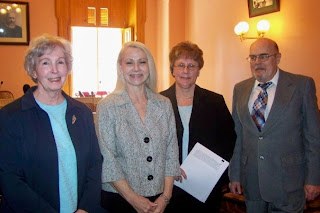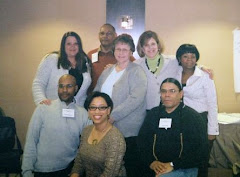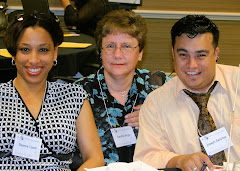This is a social network blog for recover support services personnel, anyone experiencing alcohol or addiction problems, anyone in recovery and/or anyone who is interested in recovery advocacy, creating positive community changes that focus on recovery as a reality, heighten public awareness and provide a connecting point for all the various recovery stakeholders
Wednesday, June 23, 2010
Faces and Voices of Recovery now has a new and expanded Guide to Mutual Aid Resources. It’s an online, one-stop resource where you can learn about the many varieties of online and in-person mutual aid groups that are helping people find and sustain their recovery from addiction to alcohol and other drugs. Here is the web address:http://www.facesandvoicesofrecovery.org/resources/support/widget.html. Check it out.
Tuesday, June 22, 2010
Sunday, July 12, 2009
Tuesday, June 23, 2009
Home Sweet Home
I have friends and colleagues around the states that are either in the same field of work as i or are just avid news followers. So it goes without saying that any time we converse the discussion topic will got to "what's happening on the border".
I know that the news here in El Paso is all aflutter about the "Drug Wars". Now most folks think "war on drugs", but this is not the case. What the news is aflame about is "horrific fight between it, the Juárez Cartel and the Sinaloa Cartel."
Here are some sites to give you a flash view on what has been happening, and what our Texan city of El Paso is doing to live in a solution.
http://www.theworld.org/?q=node/17758
http://www.dallasnews.com/sharedcontent/dws/news/world/mexico/stories/111209dnintexodus.188ff7e5.html
http://www.nytimes.com/2009/01/23/us/23elpaso.html?pagewanted=2
The effects of this state of events is devastating and being read and talked about around the globe. The organization that I work for and those that we collaborate with continue to live in the solution. It goes without saying that if there wasn't a demand for the product .....
My job is to be that beacon for a life free from drugs. I am proud to be a person in active recovery and be of service to the recovery community.
I know that the news here in El Paso is all aflutter about the "Drug Wars". Now most folks think "war on drugs", but this is not the case. What the news is aflame about is "horrific fight between it, the Juárez Cartel and the Sinaloa Cartel."
Here are some sites to give you a flash view on what has been happening, and what our Texan city of El Paso is doing to live in a solution.
http://www.theworld.org/?q=node/17758
http://www.dallasnews.com/sharedcontent/dws/news/world/mexico/stories/111209dnintexodus.188ff7e5.html
http://www.nytimes.com/2009/01/23/us/23elpaso.html?pagewanted=2
The effects of this state of events is devastating and being read and talked about around the globe. The organization that I work for and those that we collaborate with continue to live in the solution. It goes without saying that if there wasn't a demand for the product .....
My job is to be that beacon for a life free from drugs. I am proud to be a person in active recovery and be of service to the recovery community.
Friday, June 19, 2009
Congressional Hearing testimony

Recovery advocacy is a personal responsibility. Those individuals in long-term recovery must speak out so that others can have access to treatment and recovery support services. Funding to these services continues to be disproportionally cut in Ohio. Ron Morgan gave testimony before the Ohio Senate Finance & Appropriations Committee. I (standing next to Ron) gave testimony before both the House of Representatives and the Senate
In the picture, Ron Morgan, Sandra Keyes, Donna Conley(Ohio Citizen Advocates) and Suzanne.
Recovery Advocacy in Ohio
Ohio Budget Concerns
The Coalition for Healthy Communities, a consortium of 27 statewide alcohol and other drug addiction and mental health advocacy organizations including Ohio Citizen Advocates, is jointly communicating the following message. Please read this carefully and forward it on to others.
BUDGET UPDATE:
The Ohio Senate and House of Representatives have each taken action on Am. Sub. H.B. 1, the Fiscal Year 2010 – 2011 Biennial Budget. The bill will now go to a Conference Committee where three legislators from the House and three from the Senate will work to reconcile the differences between the two versions of the bill. It is anticipated that additional cuts will be made to parts of the state’s budget. It is absolutely imperative that consumers, family members, providers, board personnel, and other behavioral health advocates communicate directly with House and Senate leaders and their own legislators indicating the urgent need to safeguard the community alcohol, drug addiction and mental health system from further cuts.
Your advocacy is critical to any chance of success in putting a stop to the deterioration of our behavioral health care system here in Ohio. Legislators listen to the members of the Coalition, but what makes all the difference is your voice directly communicated to your elected representative. If we do not act, consumers and their loved ones will pay the price in reduced service availability. Ohio’s behavioral health system is on the verge of collapse! Specifically, we need your help in advocating for the changes below.
BUDGET CHANGES NEEDED: The Coalition for Healthy Communities calls on the General Assembly to take the following action on Am. Sub. H.B. 1:
Alcohol and Drug Addiction:
1. Restore the $3.4 million in funding to the Ohio Department of Alcohol and Drug Addiction Services (ODADAS) budget for community alcohol and drug addiction services which was cut in the Senate Version of the bill, but not in the House version. If funded at the Senate-passed level, ODADAS is projected to lose $4,525,167 in federal funding.
Mental Health:
2. Transfer $31 million in Disproportionate Share Hospital (DSH) funds in each year of the biennium from the Ohio Department of Job and Family Services budget to the Ohio Department of Mental Health budget. DSH funds are federal reimbursement dollars for indigent care provided in ODMH state hospitals. This transfer will eliminate the need for ODMH to have to take funds out of community mental health services to pay for the increased cost of care to serve forensic patients in state mental health hospitals. Forensic patients are those who are court involved.
MH & AoD Combined:
3. Restore the $3.8 million that was cut from the Residential State Supplement (RSS) program in the Ohio Department of Aging’s budget. These funds are used to provide supportive housing for individuals with severe mental illness and substance abuse disorders.
4. Restore the 0.5% Medicaid rate increase for behavioral health services included in the House budget. Behavioral healthcare providers have not had a rate increase in 12 years.
CALL TO ACTION:
Step One Write, call or e-mail the Legislative Leaders listed below and ask them to support the four changes outlined above.
Step Two Write a letter to the editor of your local paper stating why you support the four changes. Send a copy of the letter to your local legislators.
Step Three Contact your local House Representative and Senator and urge them to support the four changes. To find out who your Senator and Representative are and how to contact them, go to: www.legislature.state.oh.us.
Step Four Urge three people who you know to complete steps 1-4.
BUDGET UPDATE:
The Ohio Senate and House of Representatives have each taken action on Am. Sub. H.B. 1, the Fiscal Year 2010 – 2011 Biennial Budget. The bill will now go to a Conference Committee where three legislators from the House and three from the Senate will work to reconcile the differences between the two versions of the bill. It is anticipated that additional cuts will be made to parts of the state’s budget. It is absolutely imperative that consumers, family members, providers, board personnel, and other behavioral health advocates communicate directly with House and Senate leaders and their own legislators indicating the urgent need to safeguard the community alcohol, drug addiction and mental health system from further cuts.
Your advocacy is critical to any chance of success in putting a stop to the deterioration of our behavioral health care system here in Ohio. Legislators listen to the members of the Coalition, but what makes all the difference is your voice directly communicated to your elected representative. If we do not act, consumers and their loved ones will pay the price in reduced service availability. Ohio’s behavioral health system is on the verge of collapse! Specifically, we need your help in advocating for the changes below.
BUDGET CHANGES NEEDED: The Coalition for Healthy Communities calls on the General Assembly to take the following action on Am. Sub. H.B. 1:
Alcohol and Drug Addiction:
1. Restore the $3.4 million in funding to the Ohio Department of Alcohol and Drug Addiction Services (ODADAS) budget for community alcohol and drug addiction services which was cut in the Senate Version of the bill, but not in the House version. If funded at the Senate-passed level, ODADAS is projected to lose $4,525,167 in federal funding.
Mental Health:
2. Transfer $31 million in Disproportionate Share Hospital (DSH) funds in each year of the biennium from the Ohio Department of Job and Family Services budget to the Ohio Department of Mental Health budget. DSH funds are federal reimbursement dollars for indigent care provided in ODMH state hospitals. This transfer will eliminate the need for ODMH to have to take funds out of community mental health services to pay for the increased cost of care to serve forensic patients in state mental health hospitals. Forensic patients are those who are court involved.
MH & AoD Combined:
3. Restore the $3.8 million that was cut from the Residential State Supplement (RSS) program in the Ohio Department of Aging’s budget. These funds are used to provide supportive housing for individuals with severe mental illness and substance abuse disorders.
4. Restore the 0.5% Medicaid rate increase for behavioral health services included in the House budget. Behavioral healthcare providers have not had a rate increase in 12 years.
CALL TO ACTION:
Step One Write, call or e-mail the Legislative Leaders listed below and ask them to support the four changes outlined above.
Step Two Write a letter to the editor of your local paper stating why you support the four changes. Send a copy of the letter to your local legislators.
Step Three Contact your local House Representative and Senator and urge them to support the four changes. To find out who your Senator and Representative are and how to contact them, go to: www.legislature.state.oh.us.
Step Four Urge three people who you know to complete steps 1-4.
Sunday, May 10, 2009
Peer-to-Peer
Recently at work I have been tasked to collaborate with a couple of great minds to customize a training tool to help peers in recovery provide services to the recovery community. All the employees of the organization I work for, from bottom to top, are all in recovery.
In 2005, I began a new way of life free from drugs and was also introduced to a whole new wave of "doing things". Words like- recovery oriented systems of care, recovery support services and peer-to-peer programs were completely new to me. It is then and there as a resident and a new recipient to these concepts and life saving services, that I committed to myself to further my recovery and those around me by helping in any way i could.
Like I had mentioned these concepts were just that to me, concepts. I furthered my understanding with peer-to-peer services by becoming a volunteer and later a staff member of the very organization that guided me into a life I had never known was possible for me. I truly believe and have intrinsic faith in what I do and how I can help, and I feel I am not the only one.
We, as peers, continue to guide, motivate, and empower our brothers and sisters in recovery....
A man falls into a hole so deep he can't get out. A doctor walks by, and the man calls for help. The doctor writes a prescription, tosses it into the hole, and walks on. A priest walks by, and the man tries again. The priest writes a prayer, tosses it into the hole, and walks on. Finally a friend walks by, and again the man asks for help. To his surprise, the friend jumps in with him. "Why did you do that?" the man asks. "Now we're both in the hole." "Yes," the friend responds. "But I've been in this hole before, and I know the way out."
I found a little information that may further your understanding. I do hope you check it out.
http://www.jointogether.org/news/headlines/communitystories/2004/peer-to-peer-program-promotes.html
Namaste
In 2005, I began a new way of life free from drugs and was also introduced to a whole new wave of "doing things". Words like- recovery oriented systems of care, recovery support services and peer-to-peer programs were completely new to me. It is then and there as a resident and a new recipient to these concepts and life saving services, that I committed to myself to further my recovery and those around me by helping in any way i could.
Like I had mentioned these concepts were just that to me, concepts. I furthered my understanding with peer-to-peer services by becoming a volunteer and later a staff member of the very organization that guided me into a life I had never known was possible for me. I truly believe and have intrinsic faith in what I do and how I can help, and I feel I am not the only one.
We, as peers, continue to guide, motivate, and empower our brothers and sisters in recovery....
A man falls into a hole so deep he can't get out. A doctor walks by, and the man calls for help. The doctor writes a prescription, tosses it into the hole, and walks on. A priest walks by, and the man tries again. The priest writes a prayer, tosses it into the hole, and walks on. Finally a friend walks by, and again the man asks for help. To his surprise, the friend jumps in with him. "Why did you do that?" the man asks. "Now we're both in the hole." "Yes," the friend responds. "But I've been in this hole before, and I know the way out."
I found a little information that may further your understanding. I do hope you check it out.
http://www.jointogether.org/news/headlines/communitystories/2004/peer-to-peer-program-promotes.html
Namaste
Monday, April 27, 2009
Recovery issues news
In a move that has stunned members of the addiction community, the Center for Science in the Public Interest (CSPI) announced earlier this month that it has cut all of its Alcohol Policies Project staff except longtime director George Hacker, effectively ending the only full-time advocacy effort on alcohol policy issues on Capitol Hill.
To learn more go to: www.jointogether.org
To learn more go to: www.jointogether.org
Wednesday, March 25, 2009
Who we are
- The SUPPORT Recovery Blog is a leadership project of Team SUPPORT. Team SUPPORT is comprised of a 4-member protégé group currently participating in the PFR/ATTC Network Leadership Institute for Recovery Support Services Emerging Leaders. There are 14 participants from across the nation who have been designated as future leaders in the Recovery field and in their community. SUPPORT stands for Staging Useful Positive Presentations Of Recovery Trainings.
- The ATTC network emphasis is on six areas to achieve their vision: unifying science, education and services to transform the lives of individuals and the families affected by addiction. The Great Lakes ATTC is a regional center that focuses on several key areas including Recovery Management, Evidence-Based Practices and Strength-Based Approaches. ATTC is dedicated to identifying and advancing opportunities for improving addictions treatment and recovery services. The ATTC network takes a unified approach in delivering cutting-edge knowledge and skills to develop an empowered and a unified workforce. This workforce has the potential to transform individual lives. For more information visit their website, www.attcnetwork.org
- The PFR is an initiative sponsored by the Substance Abuse and Mental Health Services Administration (SAMHSA) and the Center of Substance Abuse Treatment (CSAT) and addresses issues of national significance. It is field and consumer-driven. PFR supports and provides technical services for the prevention and treatment of substance use and mental health disorders with the intention to improve services and systems of care. For more information visit their website, www.pfr.samhsa.gov
- Staging Useful Positive Presentations Of Recovery Trainings, this is our team’s project. Our basic tenets are to use the Internet social network to educate, advocate and heighten public awareness. There is a “new” Recovery Advocacy Movement and we want to start people thinking in a paradigm about chemical dependency problems and the reality of Recovery. It is vital that the different fractions of our field come together and help develop the general public’s attitudes and perceptions that are supportive for long-term recovery
Subscribe to:
Posts (Atom)






